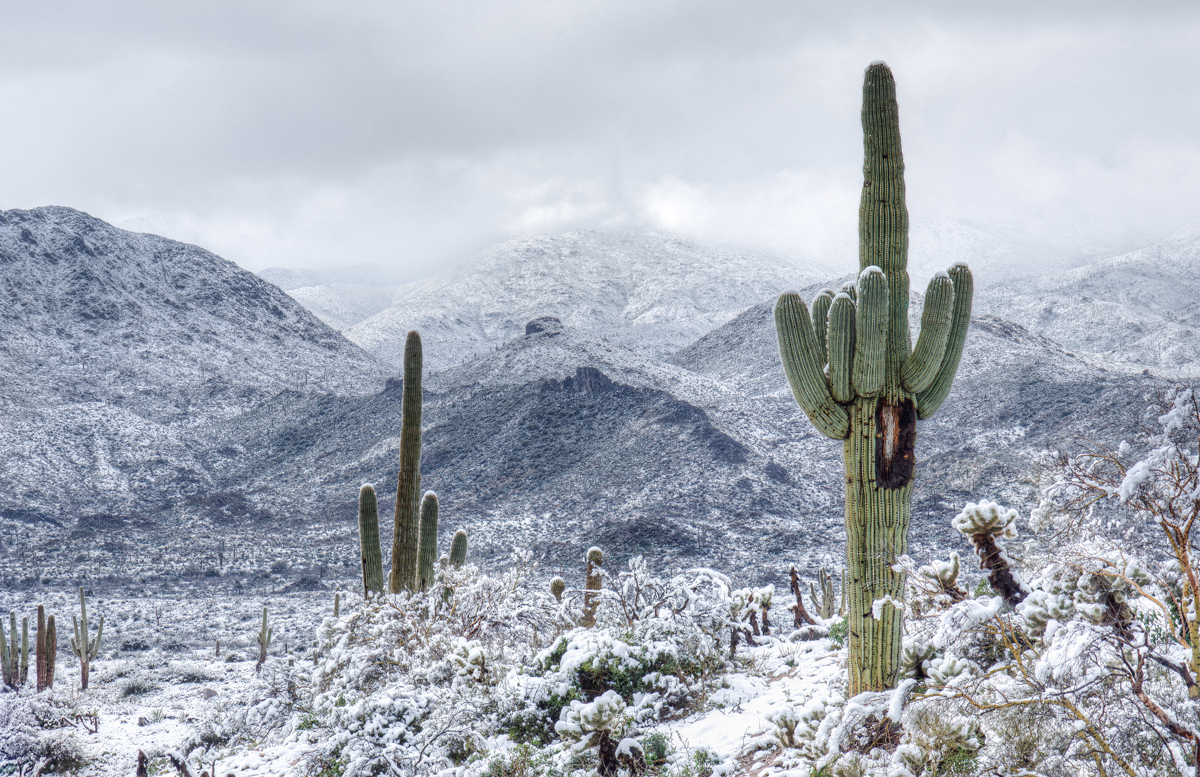
The Arizona winters can often surprise newcomers. While temperatures can undoubtedly rise beyond 110°F during the harsh summers, winters can be quite pleasant across the valley. How cold the temperatures will plummet ultimately depend on where you live in Arizona. Elevation plays a major role when determining average winter temperatures.
How Cold Does It Get In Arizona?
Due to both region and elevation, Arizona winters will vary widely. For example, the Phoenix Metro Area, routinely hits daytime temperatures ranging from 60°F to 75°F. During the nights, the temperatures will often dip into the 40s. December through February is the coldest time period in the valley.
Homeowners in Northern Arizona will experience a completely different winter compared to those in Phoenix. Flagstaff, for example, sits at 7,000-feet elevation, meaning it will regularly see snowfall and below-freezing temperatures.
Arizona Winter FAQ’s
Let’s take a look at some of the most commonly asked questions about Arizona winters.
When Does Winter Start In Arizona?
Typically, wintertime in Arizona begins in the month of November. Temperatures will begin to noticeably drop around Thanksgiving.
December is generally the coldest month in Arizona, followed closely by January and February. Spring temperature will start to return during the month of March.
Are Arizona Winters Dry?
Arizona winters are defined by low humidity, making the outdoor temperatures feel colder than they actually are.
The dry air can undoubtedly create some discomfort for visitors who are used to more humid climates.
Will It Rain In The Winter?
The Phoenix valley will see a modest amount of rain during the winter months. Most rainfall will occur between January and March.
The average rainfall is still quite low compared to what can happen during monsoon season. Flooding risks remain quite low during the winter.
How Long Does An AC Unit Last In Arizona?
It’s no secret the lifespan of an AC unit can change based on location. There are other factors that can certainly impact the lifespan, including how well it has been maintained and the specific AC model.
Throughout the majority of the U.S., AC units tend to last between 15-20 years total. In Arizona, however, AC units may only last 12-15 years due to the extreme weather.
Will Homeowners Insurance Cover A Heating System?
Homeowners insurance will cover HVAC systems when damaged as the result of a covered disaster or peril. This typically includes fallen trees, fire, hailstorms, high winds, and theft. Homeowners insurance will likely cover your unit if it is struck by lightning and damage occurs.
The portion of your policy that provides HVAC protection ultimately depends on the type of unit that is damaged. For instance, HVAC systems installed within the home are covered under dwelling insurance. Meanwhile, standalone or window AC units count as personal belongings, which are covered under personal property insurance.
Tru Comfort Heating & Cooling In The Phoenix Valley
At Tru Comfort Heating & Cooling, we deliver reliable, efficient, and cost-effective solutions to enhance comfort and water quality. Whether you need HVAC installation, repair, maintenance, or water treatment solutions, our team is here to assist you every step of the way.
Contact us today for exceptional service from an insured and bonded HVAC company. Experience reliable and efficient solutions that exceed your expectations.


